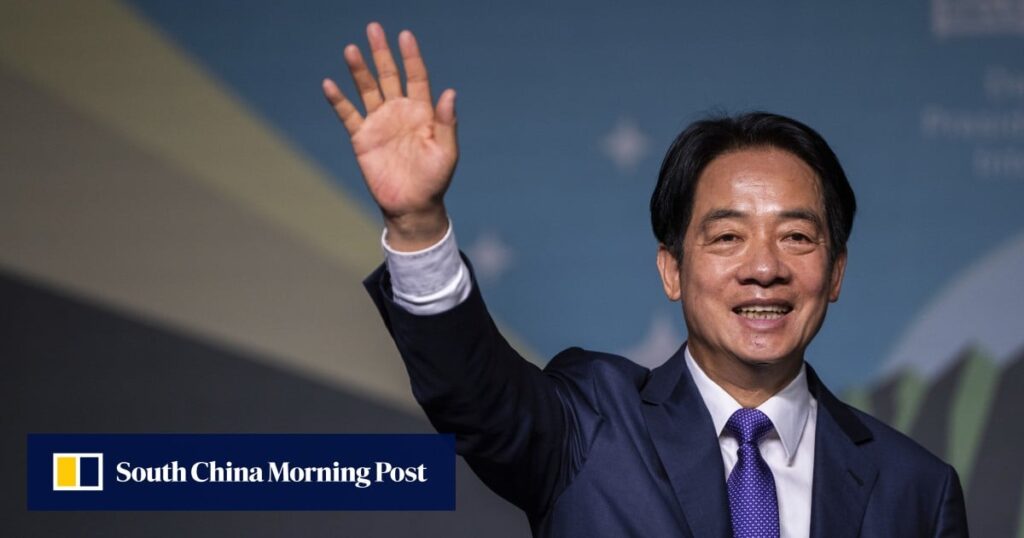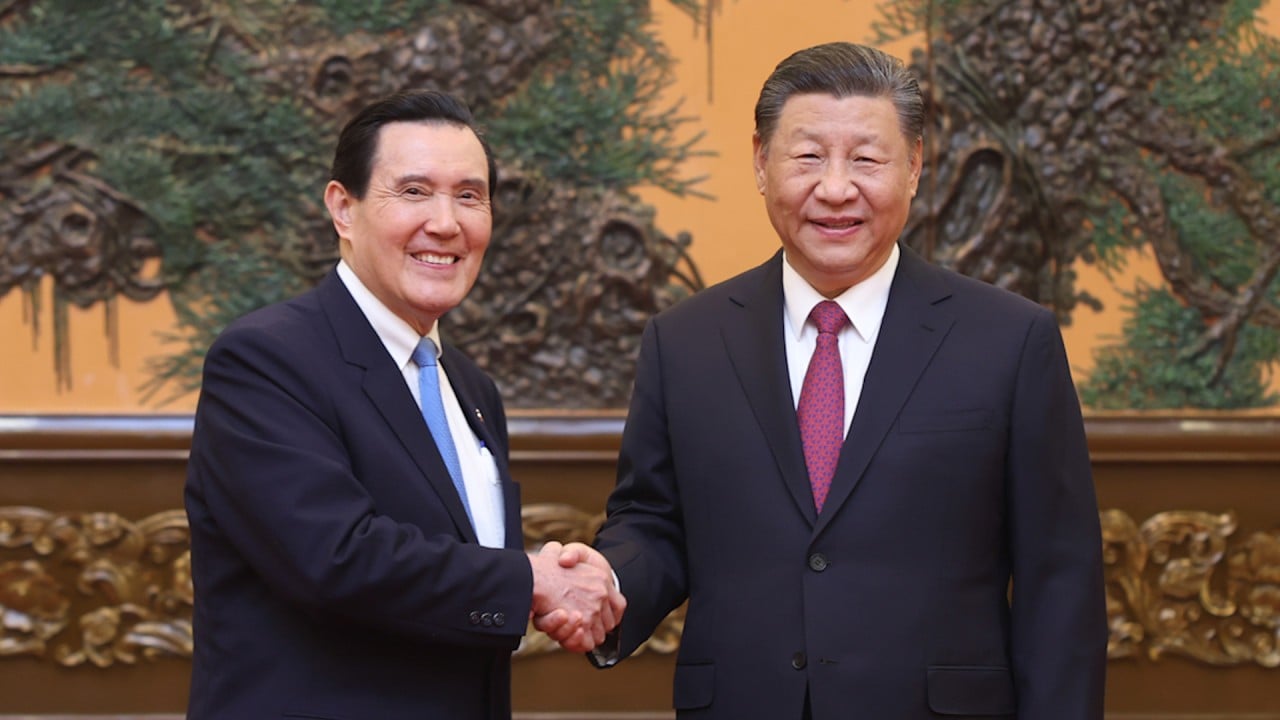The flight was perceived as an attempt by the People's Liberation Army to destabilize the island, but authorities in Beijing have taken a friendly stance with plans to ease restrictions on group travel to Taiwan and restart imports of some Taiwanese food products. showed that.
Beijing bets on Ma Ying-jeou's visit to win Taiwanese hearts
Beijing bets on Ma Ying-jeou's visit to win Taiwanese hearts
Additionally, a senior mainland customs official informed visiting lawmakers that imports of Taiwanese pomelo and two types of seafood will resume. These imports were banned in August 2022 in retaliation for then-US House Speaker Nancy Pelosi's visit to Taiwan.
Fujian takes the lead as Chinese government eases restrictions on group travel to Taiwan
Fujian takes the lead as Chinese government eases restrictions on group travel to Taiwan
But Taiwanese critics see this mixed signal of conciliatory and threatening behavior as a “carrot and stick” approach to force Taiwan to accept reunification with mainland China.
Beijing views Taiwan as territory that must be reunited with the mainland, by force if necessary. Like most countries, the United States, which is Taiwan's largest arms supplier, does not recognize self-ruled Taiwan as independent, but opposes unilaterally changing the status quo by crossing the strait by force.
Commenting on the situation, Wang Tingyu, a legislative committee member of Taiwan's ruling Democratic Progressive Party (DP), said, “The Kuomintang group has been boasting about this visit, calling it a relaxing and rewarding trip. , while they were in China. [Beijing] They sent fighter jets to harass us just 37 nautical miles from northern Taiwan. ”
Cross-strait relations have deteriorated over the past eight years since Tsai Ing-wen of the independence-minded Democratic Progressive Party was elected president of the island. Tsai has refused to accept the “one China” principle, which Beijing considers the basis of communication between the two countries. In response, the Chinese government suspended official exchanges with Taiwan and increased pressure on Taiwan through military, diplomatic, and economic means.
Since Lai Lai of the Democratic Progressive Party was elected president in January, mainland China has escalated its military threats against Taiwan.
According to the island's Defense Ministry, People's Liberation Army warplanes have flown frequently in recent months into areas close to northern Taiwan, across the median line that unofficially separates the two sides of the Taiwan Strait.
The ministry has detected People's Liberation Army fighter jets flying near Pingtung and Kaohsiung in the south, the closest being about 40 nautical miles away, making it possible for Taiwan to fly in the event of a Chinese air attack. This indicates that the response time may be shortened.
The Chinese government has labeled Lai a “stubborn separatist” who would bring war to Taiwan.
Analysts suggested the growing threats were part of a dual strategy by the Chinese government to pressure Mr. Lai ahead of his May 20 inauguration ceremony.
“Beijing only wants to engage with those who accept the 1992 Consensus and the one-China principle,” said Wang Zifeng, an analyst at the China Advanced Policy Research Group, a think tank in Taipei.
The 1992 Consensus referred to a tacit understanding reached between Beijing and the Kuomintang that year that continued dialogue required both sides to recognize that there was only one China, but that China Both parties can make their own interpretations as to whether they represent the
“In addition to economic incentives, moving fighter jets closer to Taiwan to increase intimidation is part of a dual strategy to force the next administration to compromise and accept an agreement if it wants dialogue,” said Wang of the Taipei think tank. '' he added.
He stressed that the Chinese government's goal regarding Taiwan is to end Taiwan's independent existence while incorporating it into the mainland under the “one country, two systems” model applied in Hong Kong. .
“Beijing is uncertain about what Lai will do after he takes office. Will he follow Tsai's cross-Strait policy and maintain the status quo, or will he push for a red line of independence?”
“The 'carrot and stick' approach serves as a warning to the incoming administration to remain cautious in its policy toward the homeland.”
He said that while the Chinese government is not expected to take any more aggressive measures against Taiwan between Lai's inauguration on May 20 and the US presidential election on November 5, He said the pressure campaign against the government is likely to continue.
He said Beijing may take a wait-and-see approach as it assesses the outcome of the U.S. presidential election and the policies of the new administration in Taipei and Washington.
Taiwan's next cabinet will have fresh faces, but security will be in the hands of old hands
Taiwan's next cabinet will have fresh faces, but security will be in the hands of old hands
Chen Yuren, a member of the Nationalist Party's Legislative Committee who participated in the visit to the mainland, said, “It is understandable that the Chinese government adopts a strategy of “appeasement and intimidation'' when dealing with the island.''
“Mainland China's objectives toward Taiwan have not changed, and therefore China's two-pronged strategy has not changed either,” he said.
“On the one hand, Beijing may extend more olive branches to Taiwan, but on the other hand, it won't stop sending fighter jets to orbit the island or stepping up maritime patrols.”
Since February, the Chinese government has stepped up maritime patrols around a string of islands, including Kemoi Island, also known as Kinmen Island, and Matsu Island, both of which are administered by Taiwan. This escalation followed a boat accident in which two mainland fishermen were killed while being pursued by the Taiwanese coast guard.
Taiwan's intelligence chief, Tsai Min-yen, also emphasized that Beijing's “carrot and stick approach” to the island is aimed at influencing the next government's cross-Strait policy.
“Of particular note is that the Chinese Communist Party will conduct regular military exercises from June to November after May 20,” he said.
“We are closely monitoring whether Beijing uses this period as an excuse to conduct more aggressive military exercises to further put pressure on Taiwan.”



